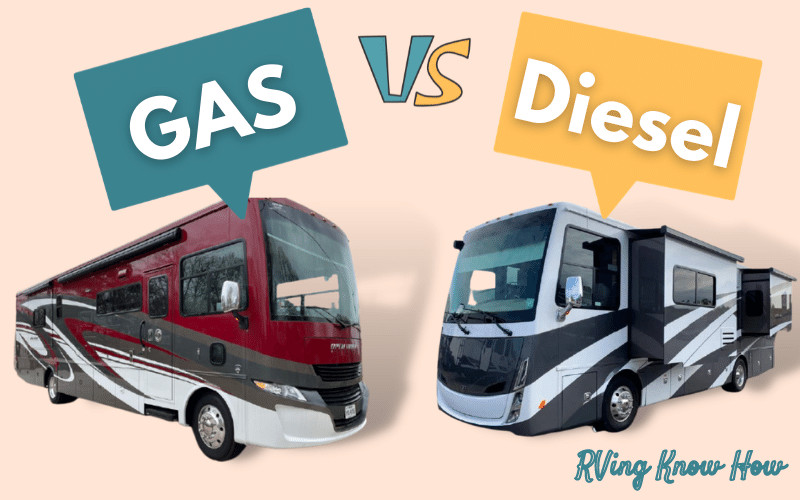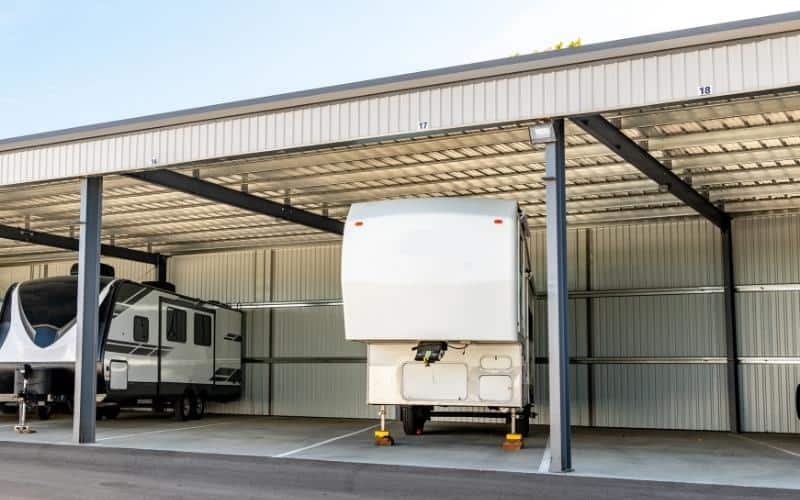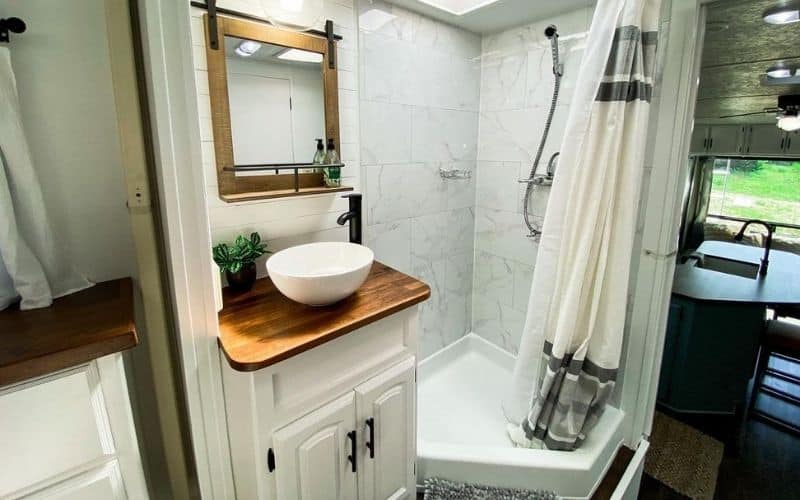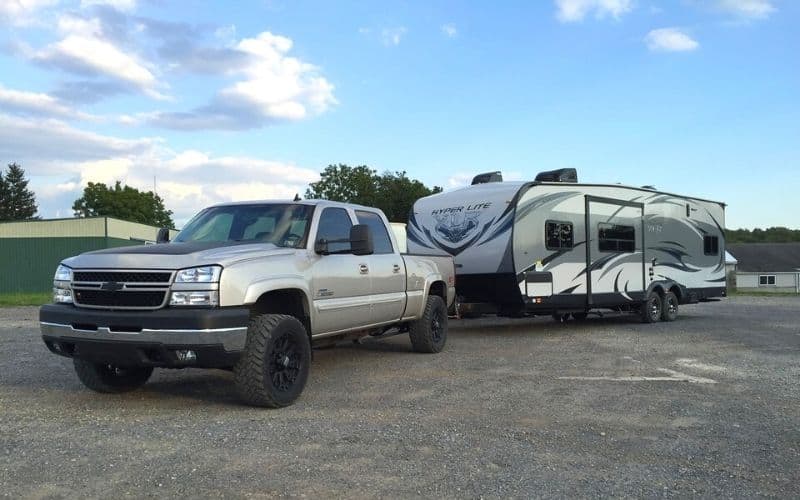A lot of people who are attracted to motorhomes ask the question, which is better a diesel or gasoline engine?
The truth is that both have their own strengths and arguable weaknesses.
A diesel motorhome tends to have more torque and towing power as well as better fuelefficiency, though they tend to have inferior acceleration.
Whereas a gasoline engine offers you better acceleration for things like merging into highway traffic, but it might not have the power to confidently flat-tow a car behind it.
To truly understand which is the better option for you, we are going to have to take a closer look at several factors that go into choosing a gasoline or diesel motorhome.
This includes things like your travel style, how much you want to tow, and even the size of the motorhome you are interested in buying.
The Different Motorhome Classes & Their Common Engine Types
There are technically three different classes of motorhome. Each has models with gasoline engines as well as diesel engines.
Class A Motorhomes
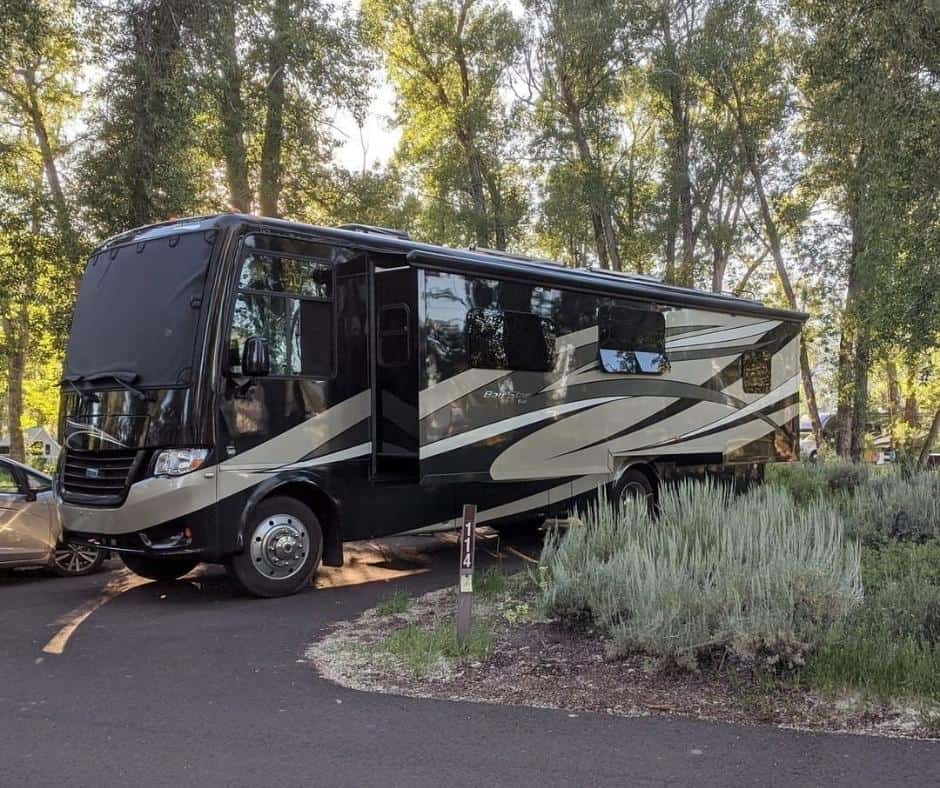
These are the largest of all RVs and are known for their size and luxury features. Most are built on bus chassis, which are heavy and cumbersome.
Many people who purchase Class A Motorhomes also like to tow a car or SUV behind them.
This makes Class A Motorhomes more likely to have a diesel engine. Though there are still a few gasoline models out there to consider.
Class B Motorhomes
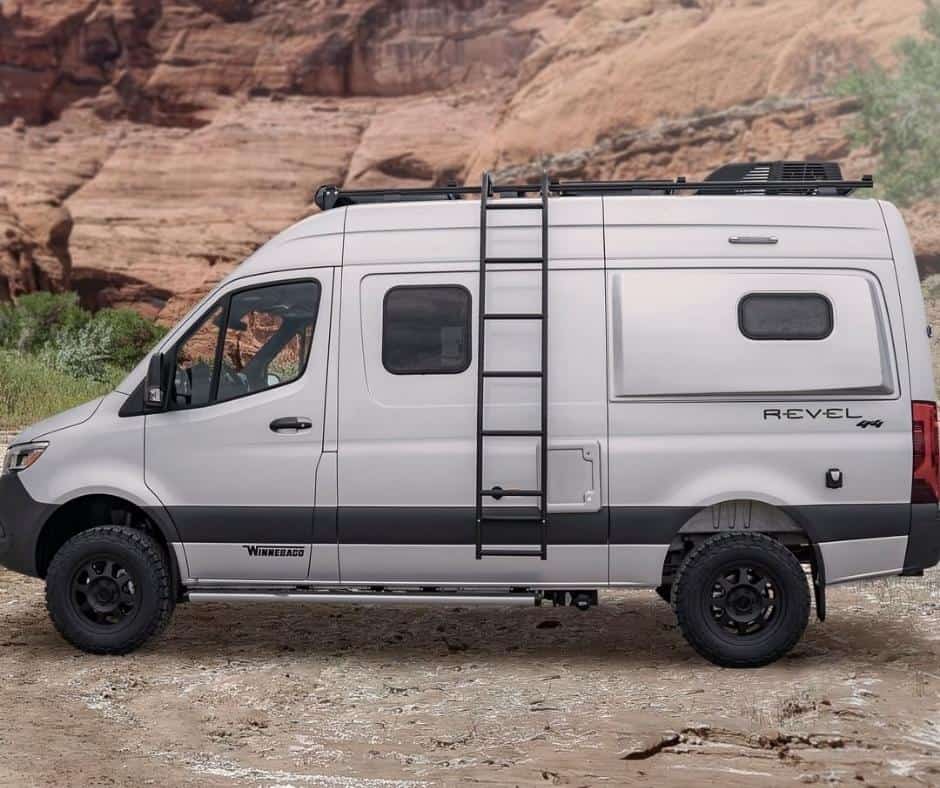
Most of these motorhomes are built on large van chassis that make them easy to drive.
Sometimes referred to as a “Camper Van,” Class B motorhomes tend to have just as many models with gasoline engines as they do diesel engines.
Class C Motorhomes
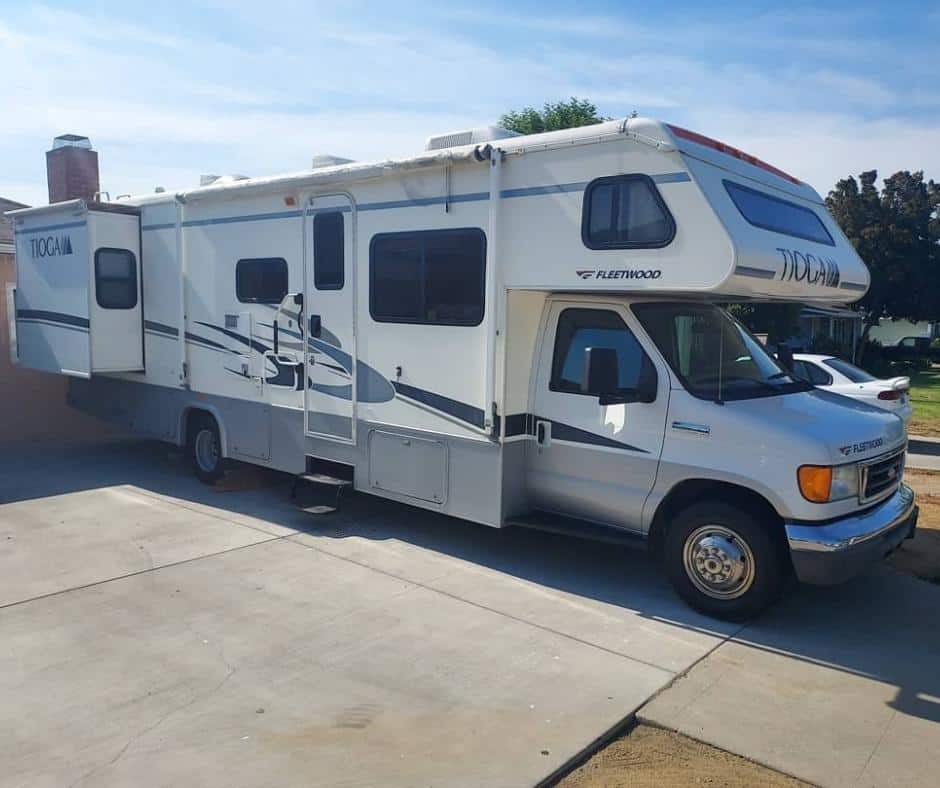
They range in size between Class A and Class B motorhomes. Some of the smaller models use the same transit van chassis that you see on Class B motorhomes.
They to have an equal split of gasoline and diesel engines. Though the larger Class C motorhomes that nearly rival their lumbering Class A siblings tend to have diesel engines, which provide them with superior towing power as well.
Things You Should Consider Before Buying A Gas Or Diesel Motorhome
If you are relatively new to the RV experience you might not have a clear idea of how you will most often use your new motorhome.
It might help thinking about your reasons for wanting to get one. This will help you dial in not just the size of motorhome you are looking for, but the key mechanical features and specifications you should prioritize.
Are You Thinking About Living In The Motorhome In The Long-Term?

Some people live in their motorhome full-time and enjoy the adventurous lifestyle that RV travel has to offer.
Though seasonal workers, construction workers, and tradesmen who need to stay on a remote job site all look to motorhomes to let them live with some semblance of home comfort for months at a time.
So-called “Snow Birds” who live in the northern states and Canada during the summer might also want to adventure in the southern “Sunbelt” states during the cold months of winter.
If this sounds like you, then chances are you will be looking for a larger Class C or a Class A motorhome.
Many people who take this route will prioritize a motorhome with a diesel engine that allows them to flat-tow a car or an SUV with them.
This is a great way to set up camp for weeks or months at a time, and still have a runabout vehicle to tour the countryside and run errands.
Will You Be Taking Short Vacations?
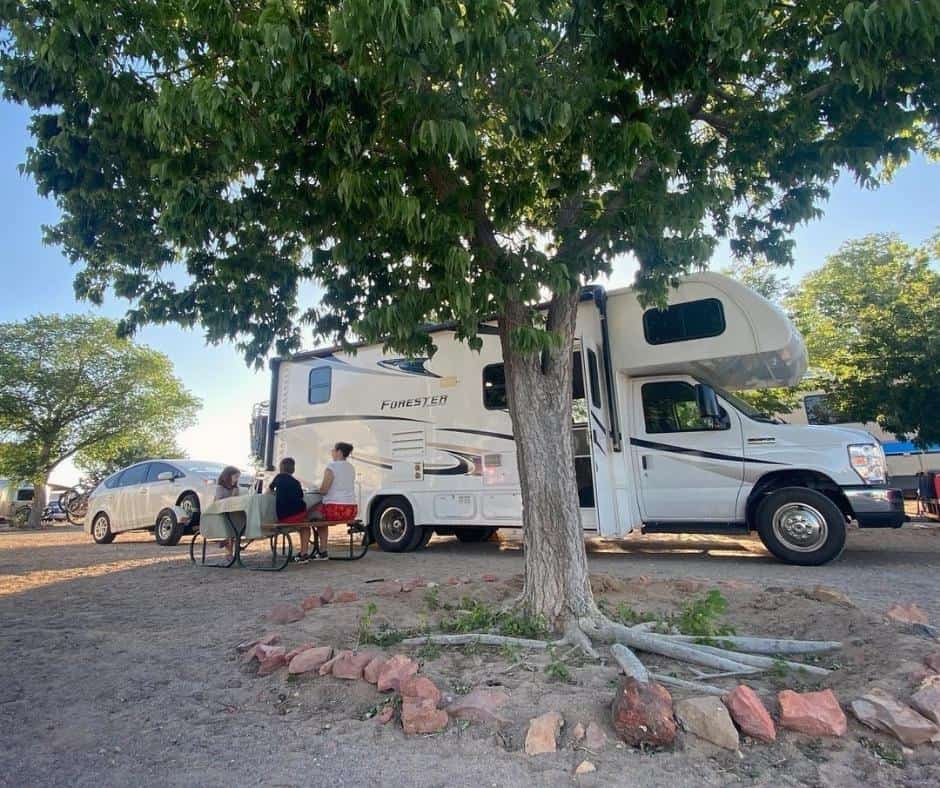
A lot of RV enthusiasts will take shorter vacations in their RV. This might be a long weekend up at the lake lot or a week-long excursion to a popular tourist destination.
In a scenario like this, the size of your RV may be strongly influenced by the size of your family and their desired comfort level.
If you will frequently be traveling during peak times like Memorial Weekend, the Fourth Of July, and Labor Day Weekend, you might want to lean toward a gasoline engine, which is more forgiving in stop-and-go traffic.
Will You Frequently Travel On Interstate Highways?
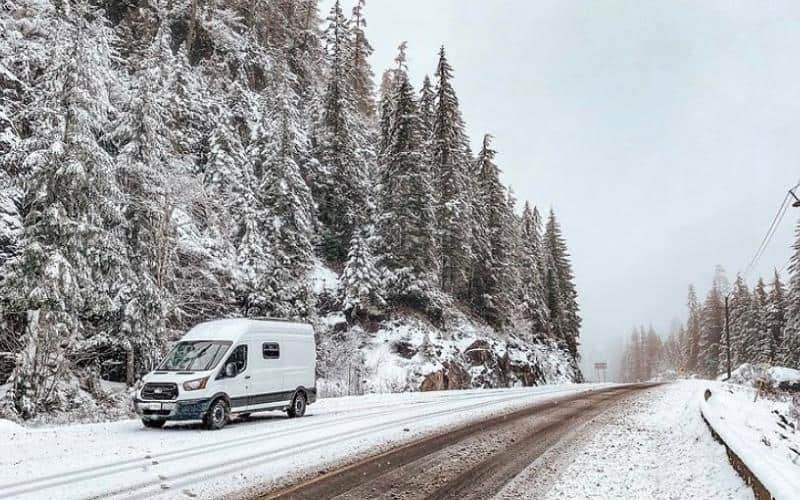
The interstate highway system might be one of the most efficient in the world, but it’s also wrought with a lot of junctions, interchanges, on and off ramps that call for an RV to rapidly accelerate.
In these times a motorhome with a gasoline engine will come in handy for getting onto and off the interstate.
Not to mention enjoying the added pep you will want when moving out of the slow lane to overtake and pass someone.
Will You RV In The Mountains?
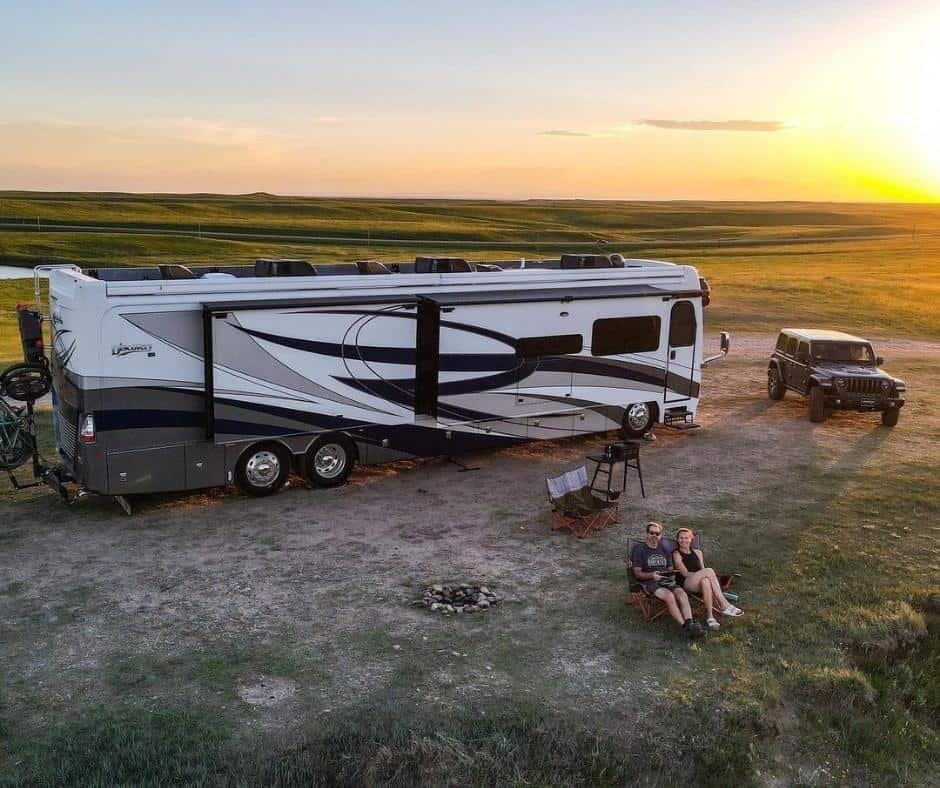
If you frequently drive through mountain passes to get to your intended destination, then you might want to lean toward a motorhome with a diesel engine. They tend to have more low-end torque for battling steep inclines.
However, if you are going to be staying at altitude, then you might want to give preference to a gasoline engine, which doesn’t suffer as much performance loss after 7 to 10,000=feet.
Will You Be Towing A Boat Or Car Behind Your Motorhome?
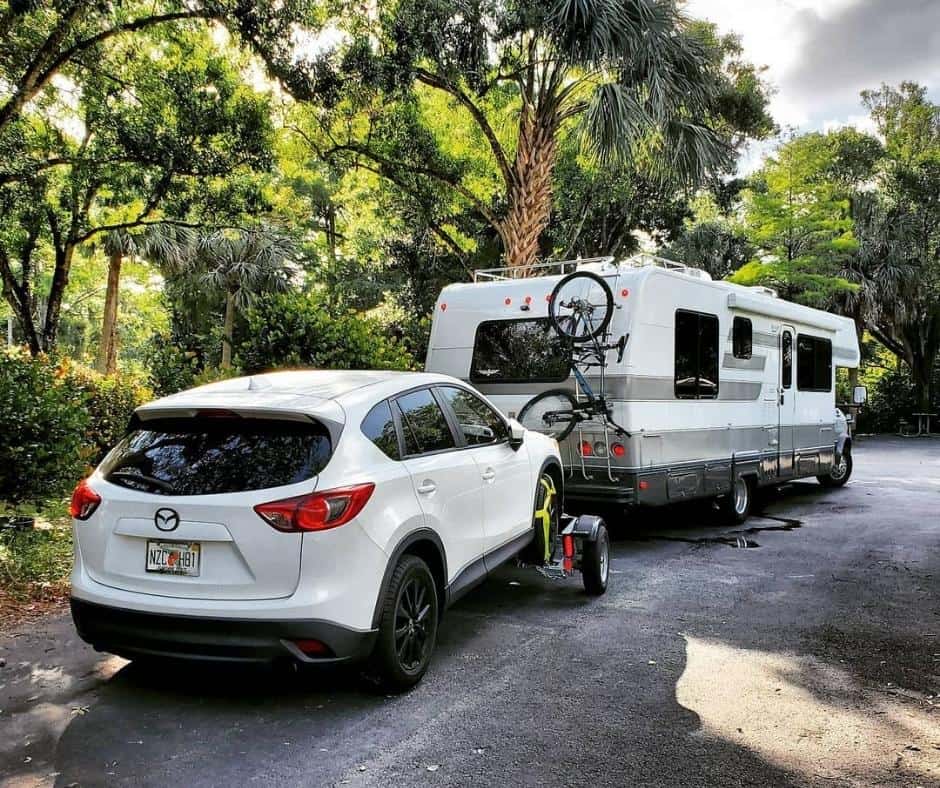
Motorhomes are big burly vehicles, and even the most nimble can still be a hassle to pull in and out of a tight campsite.
This is why so many motorhome owners tow a car or SUV behind their RV. When they get to their campsite, the vehicle is unhitched and you will have a runabout car to enjoy the local sites.
Even if you don’t want to flat-tow a vehicle with you, a lot of RV owners want to bring boats and toy trailers with them to enjoy everything mother nature has to offer.
If this sounds like something you are interested in doing with your motorhome, you might want to lean toward a model with a diesel engine.
That way you have the torque and horsepower to tow anything within reason.
Though there are still some motorhomes with powerful gasoline engines that will still get the job done. So, long as you are willing to sacrifice some fuel economy.
What Are The Pros & Cons Of A Motorhome With A Diesel Engine?
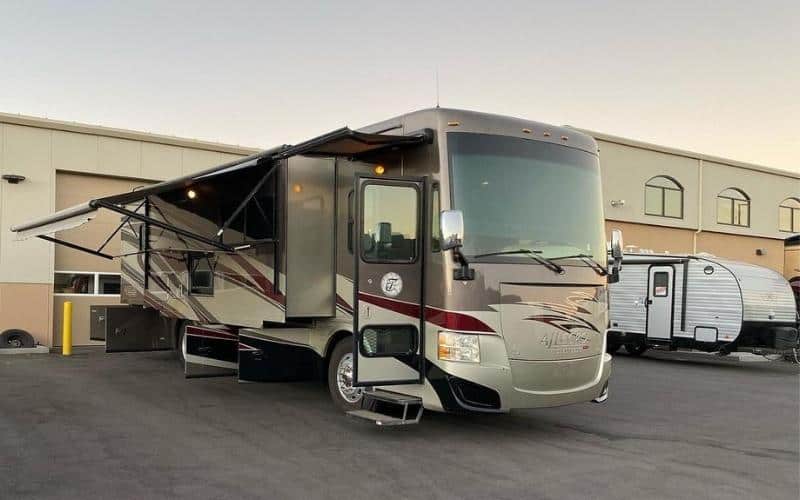
In general, diesel engines have a superior lifespan compared to a similar size gasoline engine.
This translates into not just a longer life and less maintenance, but it also improves the resale value if you decide to upgrade or downsize 5 to 10 years down the line.
The Benefits Of A Motorhome With A Diesel Engine
The Potential Drawbacks Of A Motorhome With A Diesel Engine
There are a few drawbacks or “Cons” when it comes to a motorhome with a diesel engine.
You will need to factor them into your travel style before deciding whether or not a diesel motorhome is best for you. This includes things like:
What Are The Pros & Cons Of A Motorhome With A Gasoline Engine?
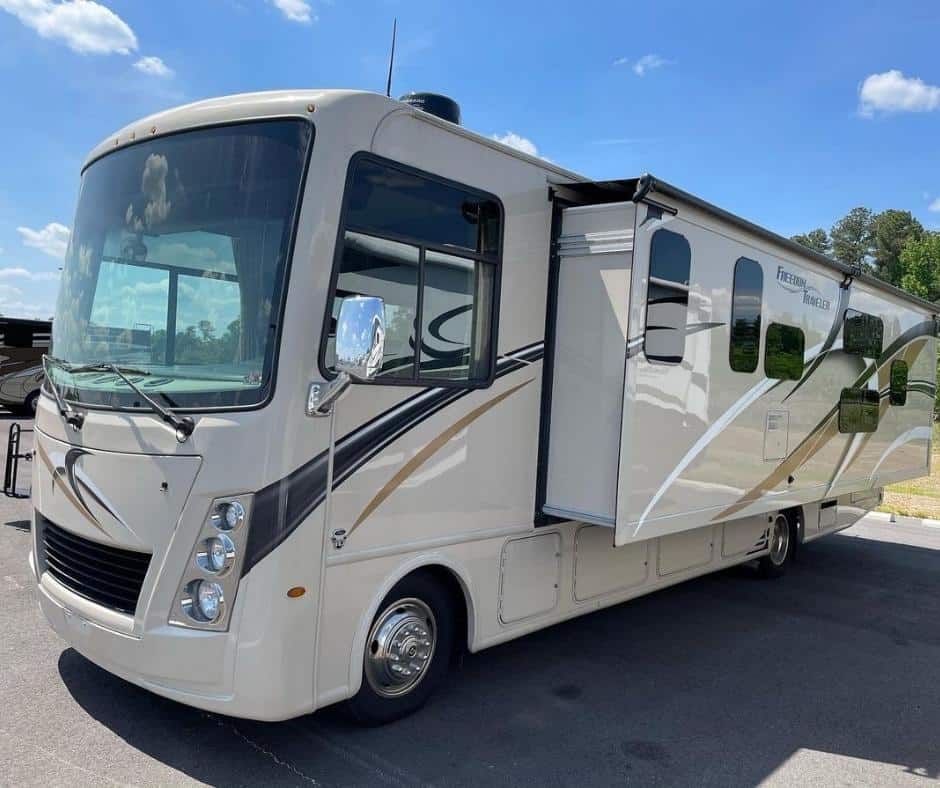
There are a few benefits and drawbacks to motorhomes with a gasoline engine, which means they aren’t ideal for everyone.
The Benefits Of A Motorhome With A Gasoline Engine
What Are The Potential Drawbacks Of A Gasoline Engine?
Should You Buy A A Gas Or Diesel Motorhome?
For the average RV adventurer, the differences between gasoline and diesel engines might seem minor.
In truth, it’s when you start to do more specialized things like flat towing or driving in the mountains that they start to show their strengths and weaknesses a little bit more.
If you are thinking about getting a large Class A motorhome, and you want the low end torque to flat-tow a car or SUV behind it, then you might want to start looking at models with a powerful diesel pusher engine.
If you like to travel on interstate highways, where you need the high end acceleration to do things like merge and pass other motorists, and you are interested in an easy to drive Class C or Class B motorhome, then you might want to prioritize a model with a gasoline engine.

